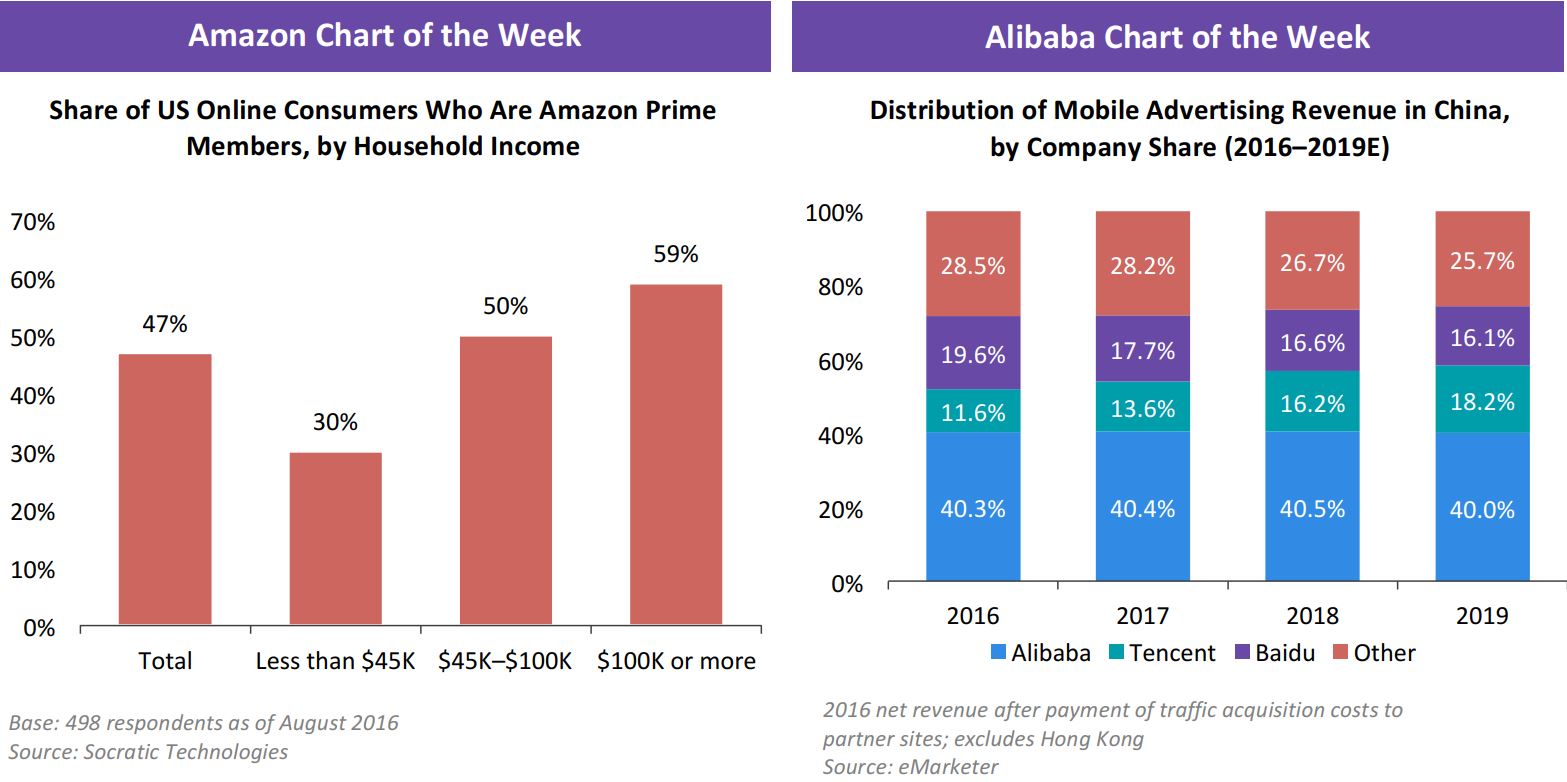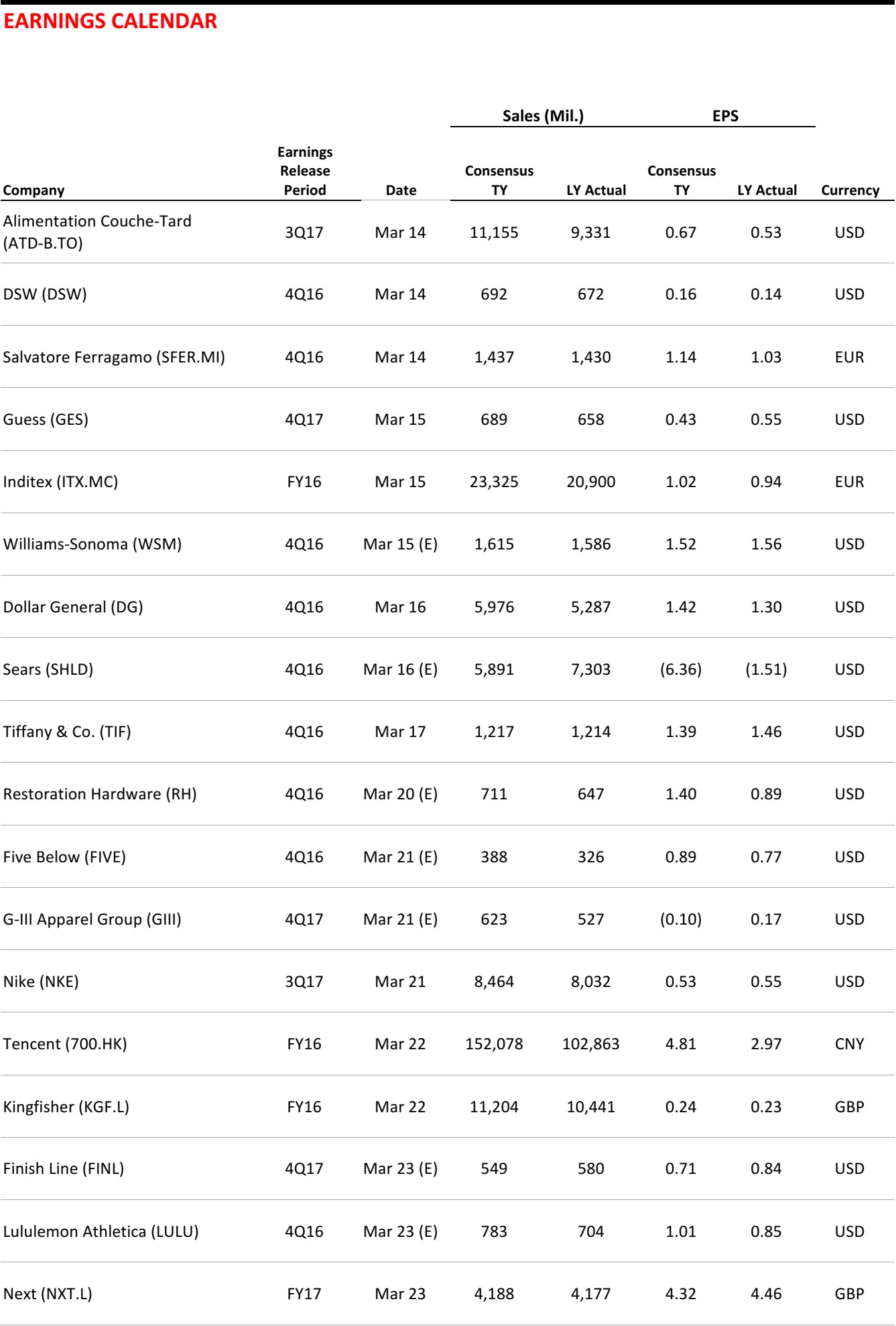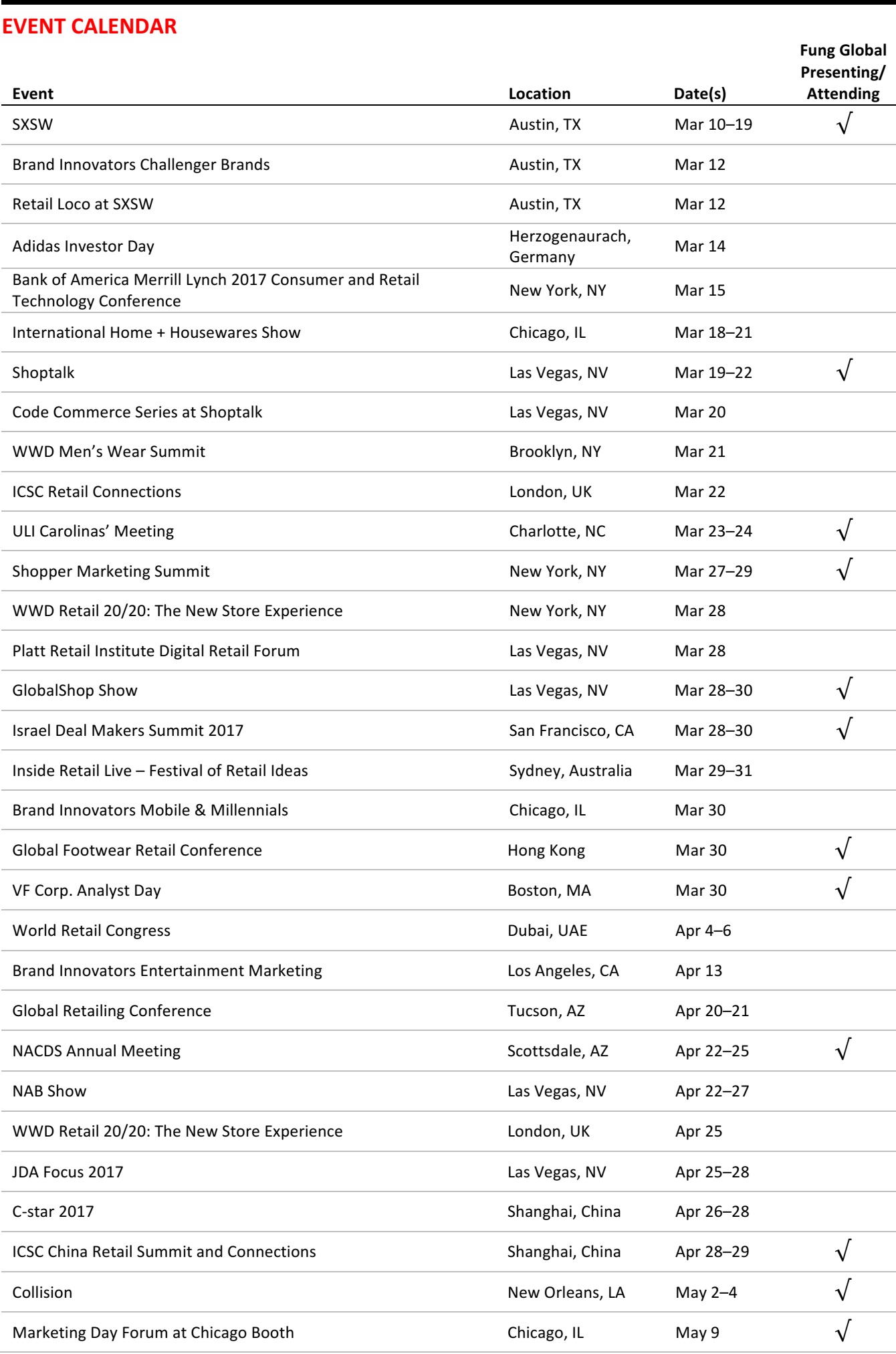
From the Desk of Deborah Weinswig
Cybersecurity: More than Just Virus Protection
Before PCs were linked via the Internet, we all felt blissfully safe from computer viruses and malware. Only people who trafficked in pirated software or who used floppy disks from unknown sources were vulnerable to the original types of malware.
Now, hackers and cybercriminals from around the globe can try to gain access to our PCs, to either vandalize or steal and sell our data and personal information or to harness our computer’s power by enslaving it to serve as a remotely controlled node in a botnet. Somewhere in between the two extremes lies ransomware, which cybercriminals use to encrypt a user’s hard drive until the user pays a quoted ransom—in untraceable bitcoin cryptocurrency.
As the variety and severity of cyberattacks has changed, the profile of the average hacker has become more complicated as well. Previously, many hackers were high school or college students just testing systems to find their weaknesses. Now, hackers often work in concert with foreign governments or organized crime syndicates to steal information and peddle it in the deepest, darkest corners of the Internet, such as the Dark Web, which consists of websites that can only be accessed through special software, ensuring anonymity and untraceability for users and operators. These new hackers are more sophisticated, and they use state-of-the-art tools that are often obtained from network security companies or government agencies.
How can law-abiding corporate IT users protect themselves?
One of the best defenses is basic network hygiene. This simply means keeping all software up to date by ensuring that all of the latest patches and security updates have been installed on each machine. In one well-known hacking case, a number of companies continued to run an old version of enterprise-resource planning (ERP) software from SAP, even though vulnerabilities in the software had long been identified and patches made available for download. (ERP software is used to control manufacturing, accounting and financial operations.) Many of the systems that had not been updated with the new patches ended up being hacked.
Given the number and sophistication of hackers and cyberthieves, most enterprises with valuable data will be hacked at one time or another. Unfortunately, many companies discover an invasion only long after it has occurred and their data has been stolen. They then have to scramble to determine when they were hacked, and who took what data, and try to find a way to ensure that it does not happen again.
These issues have spurred the emergence of specialized cybersecurity companies. First, there are companies that specialize in protection. They offer lists of websites known to contain viruses and malware and prevent users from visiting them. These cybersecurity companies can also scan file attachments to determine if they contain known viruses or malware.
There are also companies that specialize in intrusion detection by monitoring what files and resources programs and users access within a network and judging whether their activities are normal.
A third group of cybersecurity companies specialize in responding after a system has been invaded, offering tools that enable IT managers to determine the extent of the damage and stolen data.
Finally, there are companies that specialize in recovery, offering tools that help IT managers restore a system or network to a prior, unadulterated state.
Companies are also increasingly using artificial intelligence (AI) to determine which activities are normal and which are aberrant. There are many activities and processes occurring within a network at any given time, and each generates a variety of alerts. It is often difficult for software to distinguish between false alerts and true emergencies. That is where AI steps in, as it is able to determine which behavior is normal and which suspicious.
Although the advent of the Internet has given a multitude of bad actors potential access to our PCs and our data, the threat they pose has spurred a host of good actors to develop intelligent systems that can protect us from the consequences of someone inadvertently clicking on a malicious e-mail attachment or link.

US RETAIL EARNINGS

Source: Company reports
US RETAIL & TECH HEADLINES
 Luxury Retail Hits the Wall
(March 7) Forbes.com
Luxury Retail Hits the Wall
(March 7) Forbes.com
- For a long time, the conventional wisdom has been that the luxury market is largely impervious to the ups and downs of the economy. Yet recent results suggest most US-based luxury retail brands continue to struggle, despite an improving macroeconomic picture and a booming stock market.
- The problems in the luxury market go deeper among the department store players. Even an improvement in foreign tourism or the oil market is unlikely to return the sector to its former glory, as department stores face little new customer growth, little or no transaction growth, unfavorable demographics, growing competition, shifts in spending, the omnichannel migration dilemma and looming overcapacity.
 Store Closures Will Push 30% of US Malls to the Brink of Death
(March 7) AOL Finance
Store Closures Will Push 30% of US Malls to the Brink of Death
(March 7) AOL Finance
- Since the start of the year, more than 1,500 store closures have been announced by JCPenney, Macy’s, Sears, American Apparel, The Limited and Abercrombie & Fitch, among other retailers. The nation’s highest-performing malls, which are characterized in the industry as A and B malls, should be largely insulated from the fallout.
- The closures will hit C and D malls the hardest. These shopping centers, which represent about 30% of malls in the US, are already battling declining customer traffic, falling occupancy rates and low sales productivity, according to real estate research firm Green Street Advisors.
 The Bad News and the Really Bad News for Retailers Fighting Amazon.com
(March 5) The Wall Street Journal
The Bad News and the Really Bad News for Retailers Fighting Amazon.com
(March 5) The Wall Street Journal
- Amazon could inflict roughly the same amount of cumulative pain on its competitors over the next three years as it did over two decades as a public company. Amazon North America’s revenue grew by 25% for the second year in a row in 2016, to $79.8 billion. Back in 1997, US revenue was below $200 million.
- If the North America segment continues to grow at 25% a year, it will take only three more years for Amazon to add another $76 billion in annual revenue. However, Amazon will not be able to put all of its brick-and-mortar competitors out of business, as analysts predict that growth of company’s North America segment will slow to 16% in 2018 and decelerate in each of the following years.
 Retailers Had a Dismal Christmas and Now Comes Ryan’s Import Tax
(March 3) BloombergMarkets.com
Retailers Had a Dismal Christmas and Now Comes Ryan’s Import Tax
(March 3) BloombergMarkets.com
- Republican House Speaker Paul Ryan is pushing a corporate tax overhaul that would make imports more expensive, according to the retail industry. If passed, it would drastically cut into the already-thin profit margins of chains such as Best Buy and Walmart, which sell loads of foreign-made goods.
- Retailers are getting hammered on multiple fronts. States have been passing minimum-wage increases that are putting pressure on labor costs. Amazon and other web players continue to take market share, leading to dramatic declines in visits to many malls. Shoppers also have shifted spending toward their homes and experiences, while becoming better bargain hunters.
 Slow Flow of US Tax Refunds Getting Back on Track
(March 1) Reuters.com
Slow Flow of US Tax Refunds Getting Back on Track
(March 1) Reuters.com
- The flow of income tax refunds to US consumers is getting back on track following a slow start this year that has had some retail chains worried about spending. As of February 24, the IRS had sent out $127 billion in tax refunds, 10% less than the $142 billion paid by the same time last year, according to newly released IRS data.
- Due to legal changes effected this year, income tax return filings and refunds were slowed at the beginning of tax season, raising concerns that consumers might have less money to spend at retailers already struggling with dwindling mall traffic and harsh competition from Amazon. Refunds, which last year totaled $265 billion, represent a chance for many consumers to buy appliances, take care of overdue car maintenance or pay down credit cards.
EUROPE RETAIL EARNINGS

Source: Company reports
EUROPE RETAIL HEADLINES
 UK Supermarket Sales Grow by 2.3% in the 12 Weeks Ended February 26, 2017
(March 7) Kantar Worldpanel
UK Supermarket Sales Grow by 2.3% in the 12 Weeks Ended February 26, 2017
(March 7) Kantar Worldpanel
- UK grocery retail sales grew by 2.3% year over year in the 12 weeks ended February 26, according to new data from market-measurement service Kantar Worldpanel. The growth rate was the fastest since June 2014.
- During the period, Tesco grew sales by 0.6%, Sainsbury’s grew sales by 0.3% and Morrisons grew sales by 2.6%. Asda’s sales fell by 0.8%, which was a sequential improvement on previous periods. Aldi’s sales were up 12.9% and Lidl’s sales jumped 13.0%.
 Yoox Net-a-Porter to Sell Products Through WhatsApp
(March 7) Bloomberg.com
Yoox Net-a-Porter to Sell Products Through WhatsApp
(March 7) Bloomberg.com
- Luxury e-commerce retailer Yoox Net-a-Porter said that it is developing an application that will allow its customers to shop through messaging service WhatsApp. The firm’s personal shoppers already use the service to connect with top clients.
- The online retailer hopes to capitalize on being the first among its peers to offer the service, as its mobile customers place more than twice as many orders as its desktop customers do. Yoox Net-a-Porter said that it has not yet scheduled a release date, as it is still testing the service.
 John Lewis Implements In-Store Digital Customer Service Initiative
(March 7) TheRetailBulletin.com
John Lewis Implements In-Store Digital Customer Service Initiative
(March 7) TheRetailBulletin.com
- British department store John Lewis will invest £4.0 million (US$4.9 million) to enhance its in-store digital customer service. The company will provide nearly 8,000 staff with iPhones that have a dedicated “Partner App” intended to aid efficient customer service.
- The app contains information about products, allows staff to check stock availability and helps customers place online orders. The retailer will train staff on using the app and roll it out to 20 stores over the summer.
 Lidl to Open First US Stores This Summer
(March 6) WashingtonPost.com
Lidl to Open First US Stores This Summer
(March 6) WashingtonPost.com
- German retailer Lidl has announced that it plans to launch in the US this summer, with the first 20 stores to open in Virginia, North Carolina and South Carolina. The company intends to have at least 100 stores running on the East Coast within 12 months of the launch.
- The prototype store suggests that Lidl’s US formats will be significantly larger than those it operates in Europe. The company said it will offer an assortment tailored to American preferences, including familiar brands and a large selection of private-label merchandise.
 Aldi to Begin Online Sales in China This Month
(March 3) Smh.com.au
Aldi to Begin Online Sales in China This Month
(March 3) Smh.com.au
- German discount grocer Aldi will start selling online in China later this month. It will sell through leading marketplace Tmall Global and source from its existing suppliers in Australia.
- Aldi announced that a soft launch will take place on March 20, followed by a full launch in Shanghai on April 25.
ASIA TECH HEADLINES
 China’s On-Demand Taxi War Reignited: Didi Chuxing Rival UCAR Is Raising $1 Billion
(March 2) TechCrunch.com
China’s On-Demand Taxi War Reignited: Didi Chuxing Rival UCAR Is Raising $1 Billion
(March 2) TechCrunch.com
- Didi Chuxing’s deal to acquire Uber China seemingly left Didi as the last man standing and therefore the sole winner of China’s vast ride-sharing market. However, Didi’s success has also served to open new opportunities for other competitors.
- UCAR, a prominent rival of Didi in China, announced this week that it raised an initial
¥4.6 billion (US$670 million) in new funds from four investors, one of which is China’s UnionPay interbank network. The company’s high-profile backers include Warburg Pincus and Jack Ma.
 Nintendo Shares Rise as New Switch Console Launches
(March 3) Financial Times
Nintendo Shares Rise as New Switch Console Launches
(March 3) Financial Times
- Shares in Nintendo jumped following the worldwide launch of its Switch console as fans queued up for a device whose success hinges on whether home consoles can thrive in the mobile gaming era.
- The release of the Switch follows Nintendo’s first serious foray into mobile gaming with the December launch of Super Mario Run, which has been downloaded 78 million times. If the Switch is successful, the Japanese company may be able to capture a new layer of fans from the mobile gaming space.
 Baidu’s CEO Wants China’s Help on Robot Cars and a Local SpaceX
(March 3) Bloomberg.com
Baidu’s CEO Wants China’s Help on Robot Cars and a Local SpaceX
(March 3) Bloomberg.com
- China needs to put new regulations and financial subsidies in place to quicken the development of autonomous cars or risk getting left behind, according to the billionaire cofounder of Baidu, the nation’s largest search engine.
- Baidu CEO Robin Li, whose company is competing with Uber and Alphabet’s Waymo to commercialize self-driving technology, wants Beijing to take the lead in getting Chinese enterprises to collaborate on research and craft a regulatory framework.
 Alibaba Rival JD.com to Get $2.1 Billion in Finance Arm Spinoff
(March 2) Bloomberg.com
Alibaba Rival JD.com to Get $2.1 Billion in Finance Arm Spinoff
(March 2) Bloomberg.com
- JD.com agreed to sell its finance arm for ¥14.3 billion (US$2.1 billion) in cash while retaining a share of its future profits as part of a deal to spin off the fast-growing division and create a strong rival to billionaire Jack Ma’s Ant Financial.
- The sale and spinoff of JD Finance, a payments and investment business, will be completed by the middle of 2017, Beijing-based JD said. A spinoff will create a financial services powerhouse capable of providing a host of loan, securities and insurance products.
LATAM RETAIL AND TECH HEADLINES
 Latin America 4G Connections Up by 121%; Brazil Reaches 75 Million Smartphone Users
(March 6) ExchangeWire.com
Latin America 4G Connections Up by 121%; Brazil Reaches 75 Million Smartphone Users
(March 6) ExchangeWire.com
- During the Mobile World Congress in Barcelona, GSMA, a trade organization representing mobile operators worldwide, revealed its latest regional data, which showed a 121% increase in 4G connections in Latin America. The Latin American growth rates are twice as fast as the global average, and the region now accounts for 113 million connections, with 60 million of them in Brazil.
- comScore data indicate that 81 million people in Brazil browse the Internet via desktop and 75.5 million do so through smartphones, which account for 71% of users’ time online. As 105.7 million people in Brazil have access to the Internet, these usage figures highlight the importance of multiplatform web access in the country.
 Brazilian Ride-Hailing Startup Plans to Challenge Uber in Rio
(March 6) Fortune.com
Brazilian Ride-Hailing Startup Plans to Challenge Uber in Rio
(March 6) Fortune.com
- Brazilian ride-hailing app 99 said on Monday that it was introducing its discount 99POP service in Rio de Janeiro, expanding direct competition with rival Uber in Latin America’s largest economy.
- 99, which started nearly five years ago with a cab-hailing app called 99Taxis, began offering 99POP rides using ordinary cars in August in Brazil’s biggest city, São Paulo. The service’s expansion to Rio is part of a strategy financed by more than $100 million of investment led by Chinese ride-hailing company Didi Chuxing.
 Iguama Expands Cross-Border E-Commerce Shopping Mall into Mexico
(March 3) Company press release
Iguama Expands Cross-Border E-Commerce Shopping Mall into Mexico
(March 3) Company press release
- Cross-border shopping leader Iguama announced that it has expanded its online shopping mall operations into Mexico. The company now has e-commerce operations in seven countries in Latin America.
- Founded in 2014, Iguama, offers savings on thousands of US retail brands, while providing a secure cross-border shopping experience. All local customs, taxes and shipping are handled by Iguama, removing international barriers for customers and guaranteeing delivery.
 Online Startup Offers Mexican Wines Online
(February 28) MexicoNewsDaily.com
Online Startup Offers Mexican Wines Online
(February 28) MexicoNewsDaily.com
- For Mexican consumers, the Internet provides a steadily increasing source of goods, as more retailers are offering their products online. One of the latest to do so is a seller of Mexican wines. Wine drinkers in Mexico usually opt for foreign brands because selections of domestic wines are often limited.
- The online startup, Vid Mexicana, which means “Mexican grapevine,” offers nearly 1,000 Mexican wines produced by 230 wineries. Many consumers in Mexico have an erroneous perception that Mexican wine is expensive, and that certain regions produce salty or poor-quality wines.






 Store Closures Will Push 30% of US Malls to the Brink of Death
(March 7) AOL Finance
Store Closures Will Push 30% of US Malls to the Brink of Death
(March 7) AOL Finance

 Lidl to Open First US Stores This Summer
(March 6) WashingtonPost.com
Lidl to Open First US Stores This Summer
(March 6) WashingtonPost.com

